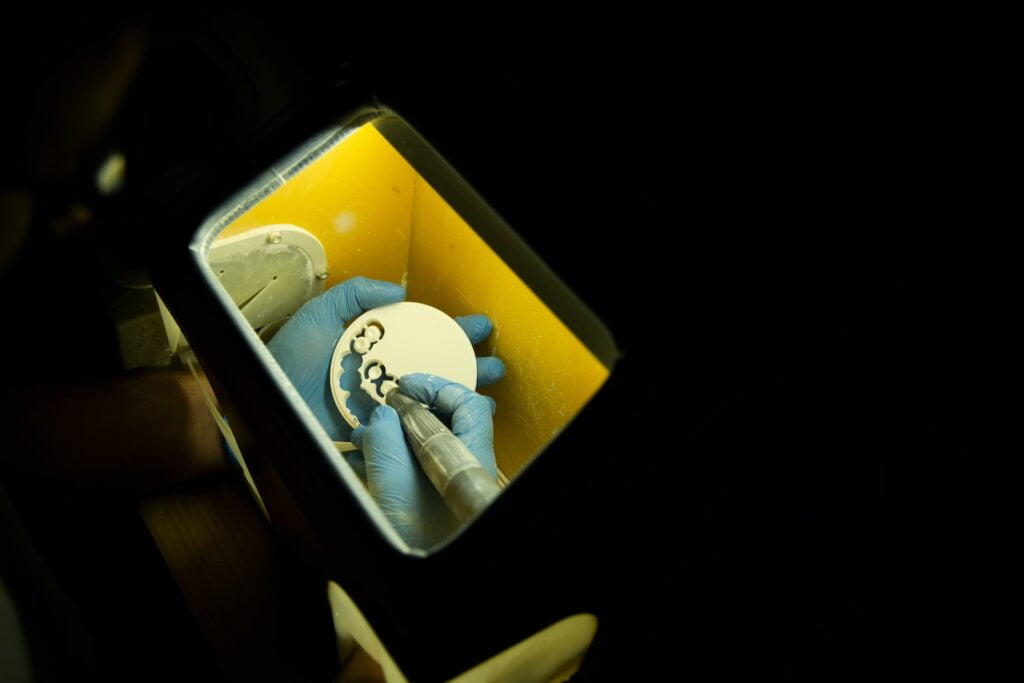Understanding Dental Implants
What Are Dental Implants?
Dental implants are a revolutionary solution in dental technology, offering a permanent solution for missing teeth. They are small, titanium posts that are surgically placed into the jawbone where teeth are missing.
The Composition of Dental Implants
These implants are made from biocompatible materials, which means they are designed to be accepted by the human body. Over time, they fuse with the jawbone, creating a sturdy foundation for replacement teeth.
The Advantages of Dental Implants

Long-term Solution for Missing Teeth
Unlike dentures or bridges, dental implants provide a long-term solution. They are designed to last a lifetime, making them a cost-effective option in the long run.
Preservation of Jawbone and Facial Structure
When you lose teeth, your jawbone can begin to deteriorate. Dental implants stimulate bone growth, preserving the jawbone and maintaining the facial structure.
Improved Oral Health
Dental implants do not require altering nearby teeth, as a tooth-supported bridge does. This means more of your natural teeth are left intact, improving long-term oral health.
Enhanced Comfort and Convenience
Dental implants eliminate the discomfort of removable dentures. They function like your own teeth, allowing for easier eating and speaking.
The Process of Getting Dental Implants
Initial Consultation
The first step is a consultation with a dental implant specialist, who will assess your oral health and determine if you are a suitable candidate for implants.
The Implant Procedure
The procedure involves placing the implant into the jawbone. It requires a healing period, during which the implant integrates with the bone – a process known as osseointegration.
Placing the Abutment and Artificial Tooth
Once the implant has fused with the jawbone, an abutment is attached to the implant. This serves as a base for the new artificial tooth or crown.
The Success Rate of Dental Implants
High Success Rate
Dental implants have a high success rate, reported to be up to 98%. With proper care, implants can last a lifetime.
Factors Influencing Success
The success of dental implants can be influenced by factors such as the health of the patient, the quality and quantity of jawbone, and proper maintenance.
Comparing Dental Implants with Other Options
Dental Implants vs. Dentures
Unlike dentures, implants are fixed in the mouth and don’t require removal for cleaning. They also don’t slip or cause discomfort, common issues with dentures.
Dental Implants vs. Bridges
Bridges can lead to bone loss in the area where the tooth is missing, while dental implants can prevent this. Implants also don’t require the reduction of adjacent teeth.
The Cost of Dental Implants
Initial Higher Cost
The initial cost of dental implants can be higher than other tooth replacement options. However, their durability and long-term benefits often make them more cost-effective.
Insurance and Financing Options
Many dental insurance plans now provide coverage for implant procedures. There are also various financing options available to make the treatment more affordable.
Caring for Your Dental Implants
Daily Oral Hygiene
Just like natural teeth, dental implants require regular brushing and flossing. This is crucial for preventing gum disease and ensuring the longevity of the implants.
Regular Dental Check-Ups
Regular check-ups and cleanings are essential. Your dentist will monitor your implants to ensure they remain in good condition.
The Impact of Dental Implants on Quality of Life
Improved Confidence and Self-Esteem
Dental implants can significantly improve your smile, which in turn boosts confidence and self-esteem.
Better Social and Professional Interactions
A full smile impacts social and professional interactions positively. Implants restore the natural appearance of your teeth, enhancing your overall presence.
Who Can Get Dental Implants?
General Candidacy
Most people who are healthy enough to undergo a routine dental extraction or oral surgery can be considered for a dental implant.
Special Considerations
Patients with chronic illnesses, such as diabetes or heart disease, need a thorough evaluation. Smokers may also require additional assessment.
The Future of Dental Implants
Technological Advancements
The field of dental implants is continuously evolving, with new advancements improving the effectiveness and comfort of the procedure.
Customization and 3D Printing
Future developments may include more customized implant solutions and the use of 3D printing to create implants tailored to individual patient needs.
Conclusion
Dental implants represent a significant advancement in dental care, offering a permanent, comfortable, and visually appealing solution for missing teeth. Their benefits extend beyond just aesthetics, contributing to overall oral health and quality of life. With proper care, dental implants can provide a lifelong solution to tooth loss, making them an excellent investment in your oral health and well-being.
